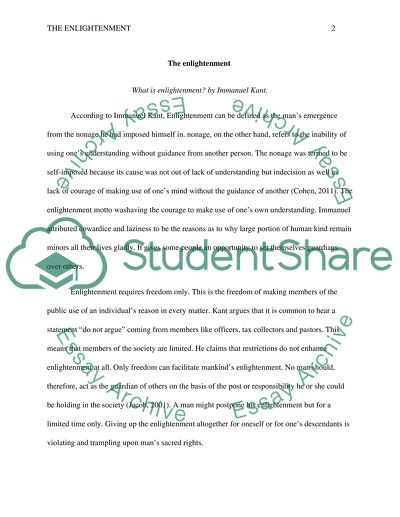Cite this document
(“The Enlightenment by Immanuel Kant Essay Example | Topics and Well Written Essays - 1500 words”, n.d.)
Retrieved from https://studentshare.org/history/1701348-the-enlightenment-by-immanuel-kant
Retrieved from https://studentshare.org/history/1701348-the-enlightenment-by-immanuel-kant
(The Enlightenment by Immanuel Kant Essay Example | Topics and Well Written Essays - 1500 Words)
https://studentshare.org/history/1701348-the-enlightenment-by-immanuel-kant.
https://studentshare.org/history/1701348-the-enlightenment-by-immanuel-kant.
“The Enlightenment by Immanuel Kant Essay Example | Topics and Well Written Essays - 1500 Words”, n.d. https://studentshare.org/history/1701348-the-enlightenment-by-immanuel-kant.


